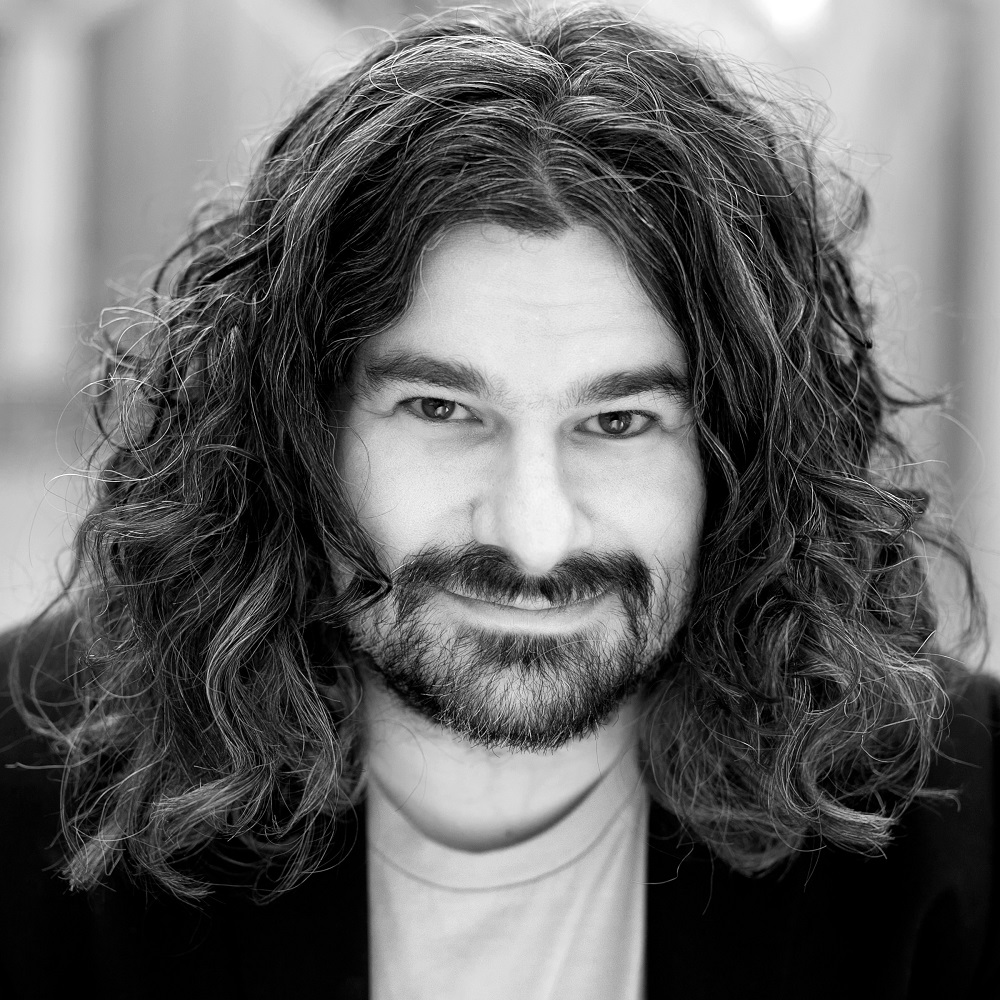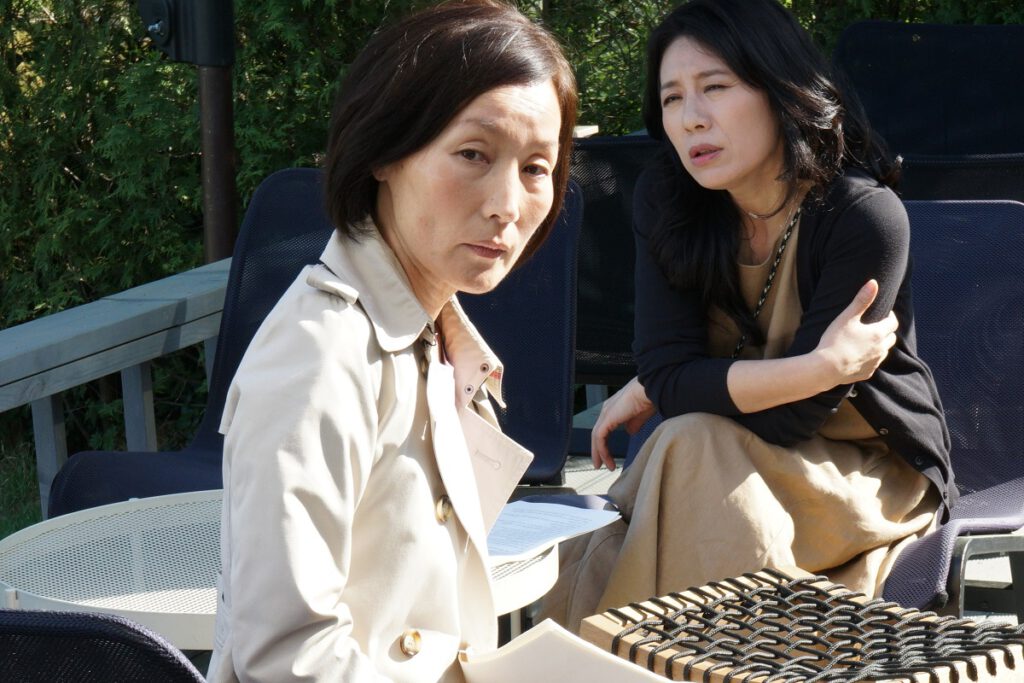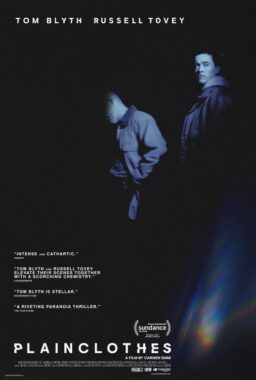Looking back, Cannes 2021 feels very much like a dream. Or, to be specific, a series of dreams, ninety minutes to three hours at a time, punctuated by lineups and spit tests and brief rain showers and rushed meals.
So much mental energy was spent navigating ever-changing travel requirements, hustling for professional opportunities, and simply getting to France that what I was actually there for was almost an afterthought. Being on the Croisette, vying for a spot in the Palais and related venues, and finding the mental energy to tune out the rest of the world while fully giving oneself over to a given film, required a greater level of self-deception than usual.
Nonetheless, the job of a critic isn’t the climb of some great mountain. I never forget my absolute privilege in being able to experience some of the year’s great works of cinema in one of the most pure and wonderful settings. As essential as it was, drowning out the real world sometimes felt both indulgent and irresponsible. Gowns and tuxedos may be offensive with rising cases, devastating mudslides and forest fires and droughts ravaging much of the world. In our bubble, both epidemiological and cinematic, we let the world’s stories in for two weeks while keeping the real world at bay.
I found moments of sheer delight in the likes of “The French Dispatch,” gleefully overwhelmed by its sense of playfulness. I was energized by the tenacity of Paul Verhoeven, who, at 83 years old, brought the ribald, remarkable “Benedetta,” proving age is no barrier to the creation of art that has as much vitality as this movie. “Red Rocket” reinforced Sean Baker’s role as one of the most gifted and exciting American filmmakers, presenting a film that’s as sophisticated as any while being unafraid to also be entertaining and engaging. There were movies here to fall in love with, and whatever this period of lockdown has held, maybe that’s just enough to make the journey to France to experience these films in the best of circumstances worthwhile.
I’m always open to engage with filmmakers whose previous works I haven’t liked, with the unbridled optimism that just maybe their latest will work for me. While I was no fan of Joanna Hogg’s “The Souvenir” which premiered at the Sundance festival in 2019 held just before lockdown, going in open minded to “The Souvenir: Part II” proved a welcome experience. Further, it solidified my belief that the first chapter was entirely superfluous. I encourage viewers to perhaps skip straight to this far less insular film that quite literally erases the need for what came before by absorbing any of its charms into this far more satisfying presentation.
Even Apichatpong Weerasethakul, a filmmaker that definitely is not to my taste, crafted with “Memoria” a film with just enough engaging elements for me to hold onto that I managed, after a half dozen attempts, to be swayed by his style. Add in scenes where a sound mixer messes with Pro Tools, along with a dash of the delight that is Tilda Swinton and the contrasting chaos and calm of Colombia, and you’ve got a film that works for even the most vocal Apichatpong detractor, this writer especially.
Then there’s the likes of Sean Penn’s “Flag Day,” which gave lie to the notion that after a year delay we’d only be witness to the best of the best. Yet even with this disastrous screening it felt like its awfulness didn’t hit hard enough, lacking the magnitude of the failure that was 2016’s “The Last Face,” one of the worst films to have ever played in competition. I felt close to that nuclear bomb-level of terrible with Dumont’s “France,” and then simply took it as a sign of these insane times that some critics gave that risible entry extremely high marks. There’s no accounting for taste, of course, but that does feel a bit like gaslighting in the case of this horrible mess.
The final surreal moment was the catastrophic failure of Jury President Spike Lee to either attend or pay attention to rehearsal instructions as to how the awards ceremony is meant to be conducted. Bleating out the winner prematurely is one thing, but the way that he doubled down on making the same mistake over and over, even at one point shouting “Speak English!” at a live event in France, spoke to the fact that even if the trappings of normal are here, the gauze of glamour for this entire event is razor thin. The organizers managed to pull it off, barely, and while bomb threats and ticketing system collapses and COVID scares didn’t stop things for too long, to say that things went off smoothly would be a lie. Yet throughout festival director Thierry Frémaux, immaculate in his tuxedo, managed with sheer force of will to make us believe during his tireless introductions to each screening that, yes, this was Cannes, and we were all playing a role to help celebrate the very survival of collectively seeing movies on the big screen.

One of those grand cinematic moments marred by some logistical nonsense occurred when seeing Gaspar Noé’s “Vortex.” The event just prior had Bill Murray giving a musical performance at the premiere of “New Worlds,” and it threw the subsequent film’s start time well out of whack. When we finally entered an hour late, having been in a swarm that COVID protocols were meant to obviate, Noé and his stars Dario Argento and Françoise Lebrun were feted by a standing ovation before the film even began.
Ostensibly the story of an elderly couple in decline, Noé uses a split screen technique to follow both spouses as they go about their day. With side-by-side 4:3 round-corner images and cuts accentuated by inserted black frames that work almost like cinematic blinks, the result is a decidedly moving and engaging film. Both Argento and Lebrun are old pros, and the casualness of their performances are honed by decades of skill. Along with Alex Lutz, who plays the couple’s son and helps anchor some of the narrative, Noé’s film eschews much of the visceral and kinetic trapping of much of his earlier work and instead feels architecturally precise and emotionally resonant.
Both the form of the telling and the quietness of performance means that when things do go awry they do so with a quiet intensity that’s as unnerving as many horror films. Lebrun’s character in particular has a vacancy that easily could have been read as merely absent, yet she delivers the role with incredible subtlety, her eyes practically screaming as her mind betrays her. Similar moments of quiet rage inform Argento’s take, and the sheer anguish of what’s being lost, be it in the form of important papers or simply the life slipping away from both, is genuinely heartbreaking.
The result is a movie that’s extremely effective at bringing us into the world of these characters while its filmmaking simultaneously makes us feel disjointed and unsettled. It’s a remarkable achievement that will be dramatically hampered by being experienced on a small screen, so while not everyone will get a change you’re hereby encouraged to try and find a way to see this as intended, and to quite literally fall into what Noé’s “Vortex” has to offer.

“Vortex” played the new Premiere sidebar, along with films from Andrea Arnold, Oliver Stone, a new not-in-competition slate meant to accommodate the festivals favorite auteurs outside the competition slots. Hong Sang-soo was part of this slate with his latest film, “In Front Of Your Face,” the 11th time this Korean director has screened at this festival. True to form, the movie uses many of the filmmakers’ common devices, from long steady zooms to quiet and contemplative dialogue scenes that remove such pedestrian considerations as “plot” in favor of simply luxuriating in the moment.
Its 87-minute running time is welcome at a fest with many bloated offerings, but even with that relatively briskness the sleepy nature of the filmmaking will be trying for many unaccustomed to the filmmaker’s trademark style.
We meet Sangok (Lee Hyeyoung), who is crashing on the couch of her sister (Cho Yunhee). The two go to the park, have a stilted conversation about not very much, and then part ways. Sangok then goes and meets with a film director (Kwon Haehyo) who wishes to go and create a short film with her the next day, but really simply wishes to exploit the situation to be close to an actress who he has an infatuation with. For reasons that are obvious from the initial scenes on the couch but best kept for those wanting a modicum of surprise from this generally plotless film, the film cannot happen, and Sangok is left the next morning to simply laugh at the absurdity of it all.
You get exactly what you expect out of Hong’s film, and perhaps this is comforting to fans of his work simply wanting to luxuriate in the quiet, meandering stories he likes to tell. It’s churlish to complain that you’re getting exactly what the filmmaker wants to give, but there is indeed a surreal meta element at play here when the talk of filming the new story shows that basically at 87 minutes this is a bloated version of what could be a minutes-long short. The running time of “In Front of Your Face” has been extended by simply making everything achingly slow and mundane.

Finally, a look at Justin Chon’s “Blue Bayou” which played in the Un Certain Regard sidebar. Korean-American filmmaker Chon is best known for his 2017 Sundance film “Gook,” set during the L.A. riots. His latest tackles several contemporary hot-button social issues, including tenuous immigration status, police violence, and the legacy of foreign adoptions. It’s a lot to cover, and all these pieces are overwhelmed by the resulting haphazard storyline.
Chon plays Antonio LeBlanc, a tattoo artist looking to improve his employment situation despite having a felony record. He’s helping raise a step-daughter named Jesse (Sydney Kowalske) with his new wife Kathy (Alicia Vikander), who is pregnant with their child. Kathy’s ex Ace (Mark O’Brien) is a cop, and uses the power of his uniform to make life challenging as he tries to reconnect with his biological daughter. Ace’s partner Denny (Emory Cohen) is even more committed to causing strife, resulting in Antonio forced to confront aspects of his past outside his control.
While the setup is promising, and Vikander’s singing of the Linda Ronstadt song that give the film its title a welcome moment, the film becomes more and more ridiculously clichéd. Witnessing the terrible decision making of characters is often the core of American independent film, but here it’s presented in such a mediocre way that you generally stop caring. There’s so much thrown at the wall just to see what sticks—from sickly tattoo patrons to questions about identity, culture, and criminality—that none of it really holds any impact. The last act is particularly egregious, with a “Footloose”-like moment at what should be an emotional highpoint causing actual laughter from some of the audience at its sheer predictability and ridiculousness.
Even the filmmaking itself shows many flaws, with many issues of continuity standing out, and repeated shots with hair and other gunk in the gate letting us all know this was shot on film for no obvious aesthetic benefit. Chon is way too close to his story to have any objectivity, and while the rest of the cast try their best to navigate the overly simplistic plot elements, it all feels very much like an exercise in futility.
Who knows what 2022 will bring—already there’s talk of a “Wembley variant” after the Euro finals in London, and we may be witness to a brief window of normalcy before things shut down again. Or, perhaps by next May, Cannes will be back to its regular rollicking self, the mega yachts returning en masse and the tens of thousands of market patrons who were absent this year returning for in-person meetings. This could be the revitalization of fest-going, or the death throes of an event out of touch with the realities of what’s occurring globally.
Whatever occurs in the next few months and years, I make the easy prediction that though a mix of stubbornness, hubris, tenacity and a pure love of the cinematic form, Cannes is likely to remain the main home for international cinema, where almost every director is treated like a superstar and minutes-long ovations greet even the most middling of movies. As long as there are people to gather in the dark and collectively experience films, there will be a Cannes Film Festival.
And while the future may be bleak and uncertain, it’s clear that Thierry Frémaux and his army of helpers will continue to do whatever they can to remind us that movies at their best are magical experiences. Even in the ravages of a modern plague, cinephilia can survive.












